Food and drink you should avoid for a good night’s sleep
Eat wisely, sleep well
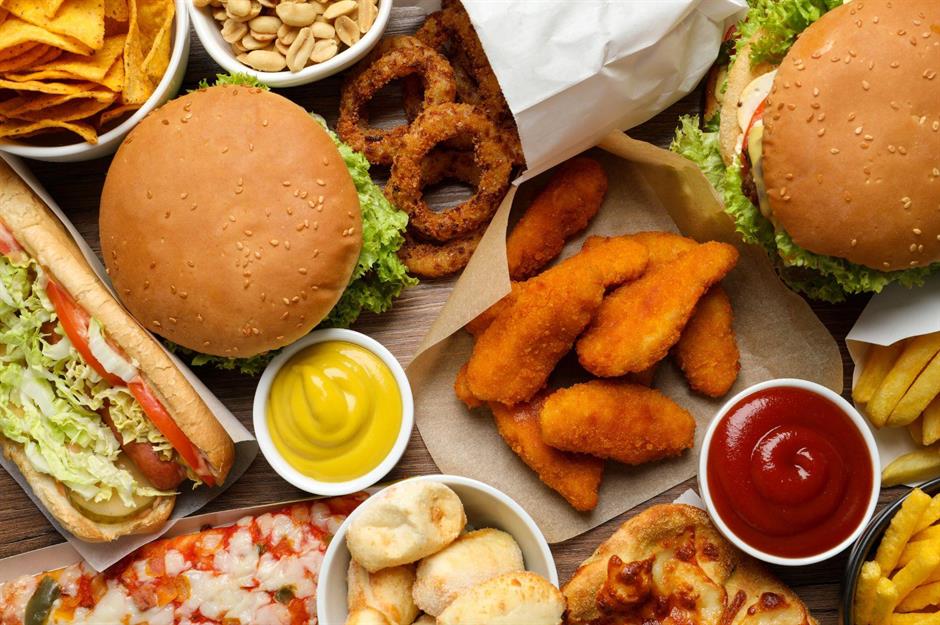
It might be time to forgo that pre-bed bowl of sugary cereal or late-night drive-thru run if you want a good night's sleep. Multiple factors prevent us from sinking into a deep slumber at night – and eating certain foods could be one of them. While there are a few habits you can get into that'll set you up for a decent doze (such as eating early and eating light), avoiding the following foods is a surefire way to improve your chances of a restful night.
Click or scroll through our gallery to discover 31 foods you should never eat before bedtime, counting down to the most impactful of all.
We've based our ranking on each food's effects on sleep, and on the opinions of our well-travelled (and well-fed) team. The list is unavoidably subjective.
31. Popcorn
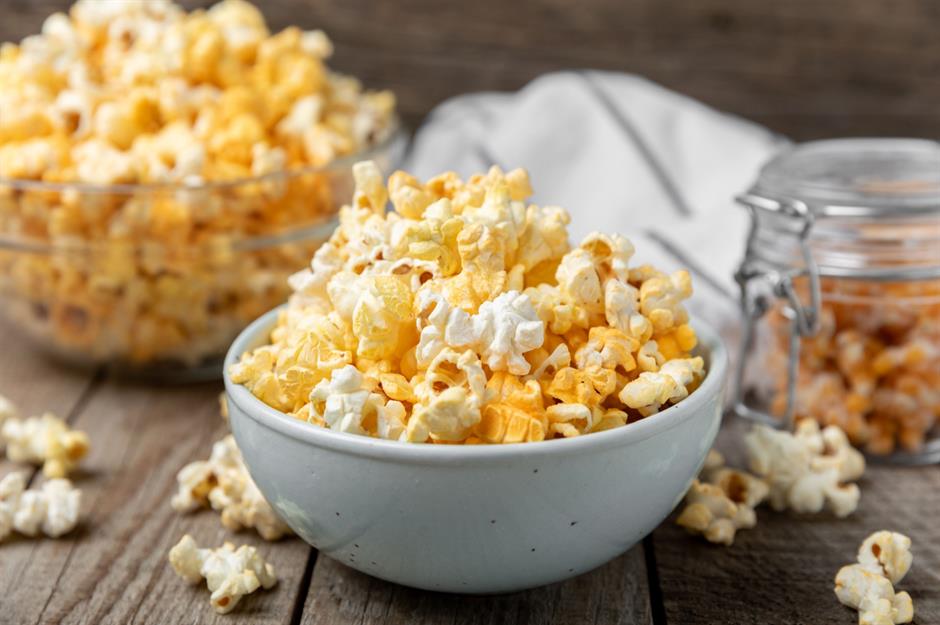
Plain popcorn is a tasty, healthy snack – but you could have trouble sleeping if you add any flavourings to your freshly popped corn. Whether you like it sweet, salty or buttery, flavouring your popcorn usually involves adding extra fat, sugar and salt, all of which can cause problems. Spiked blood sugar, dehydration and stomach discomfort are among the issues you could face.
30. Fermented sauces
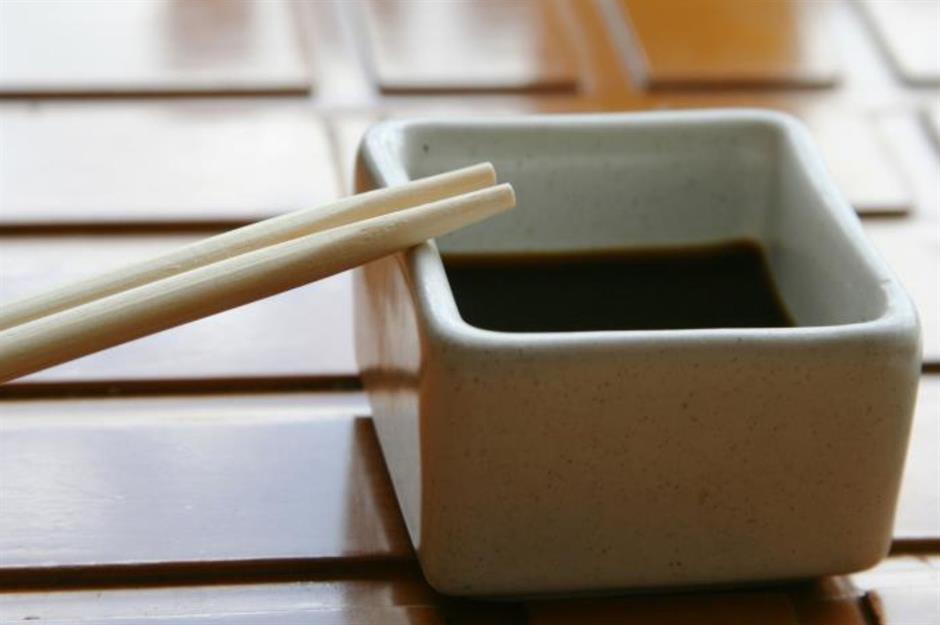
Like other aged foods, fermented sauces – including soy sauce, fish sauce and teriyaki sauce – contain high levels of the amino acid tyramine, which boosts production of the brain stimulant norepinephrine, causing alertness. Not only that, but tyramine is also thought to be the culprit behind migraines. While they're undoubtedly delicious and add a depth of rich umami flavour to meals, you should cut down your intake (or simply avoid them too close to bedtime) to ensure you have a restful night.
29. Celery
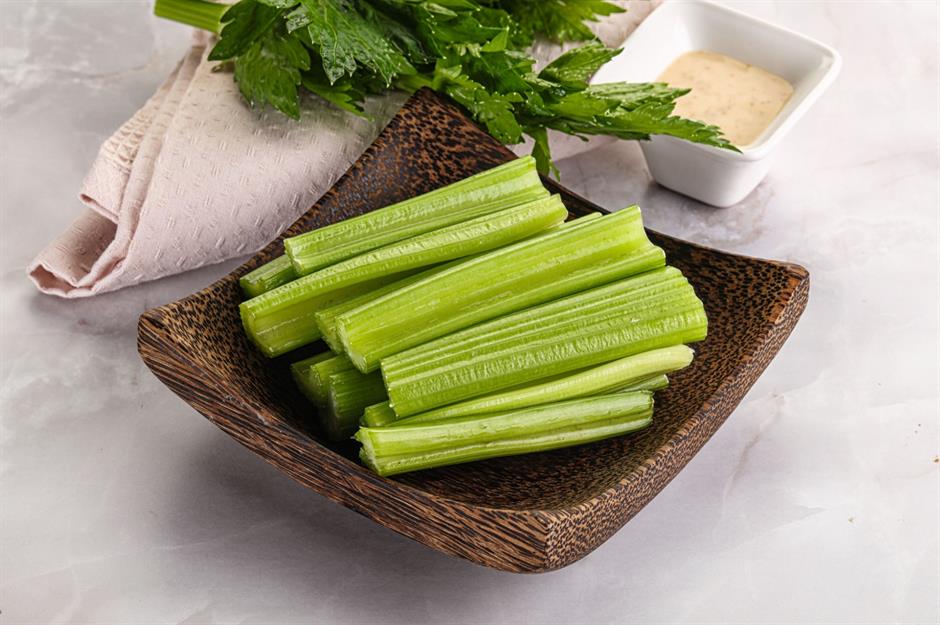
With barely any calories, celery is a healthy snack to nibble on during the day. There’s just one problem that makes it an unwise choice before bed – and that’s its high water content. Though it's perfect for helping you stay hydrated at other times, it could have you getting up in the night to relieve yourself, disrupting your sleep. So, stay away from the crunchy stuff if you want to be under the covers until morning.
28. Dried fruit
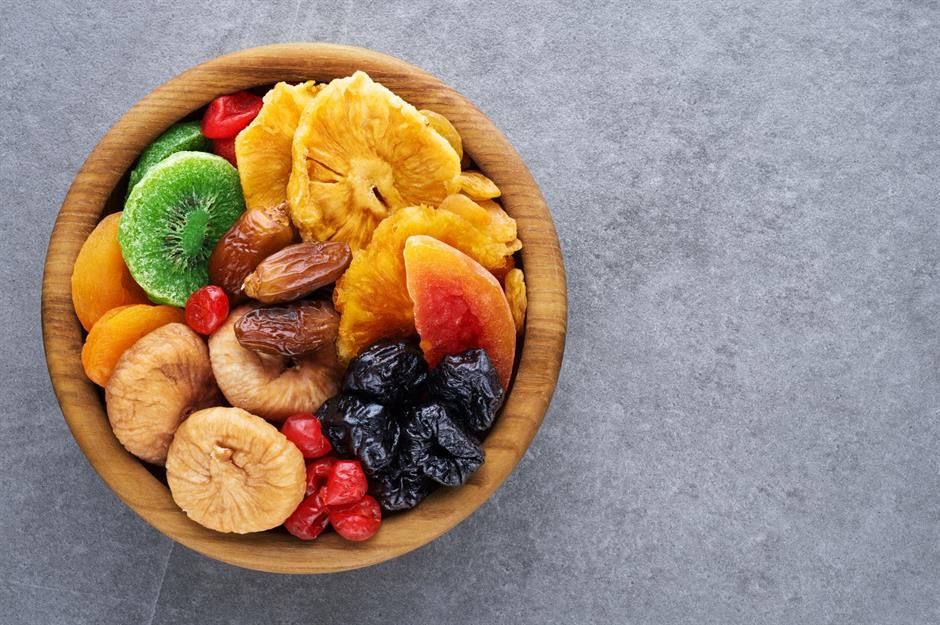
Some dried fruits are perfectly fine to snack on before bedtime – but it's best to check the label on the packet before you indulge. Some dried fruits are heavily processed and contain added sugars (which are known to sabotage sleep), while others can be difficult to digest, causing night-time discomfort. Choose dried fruits that are high in magnesium, such as prunes, as these can promote relaxation.
27. Milk
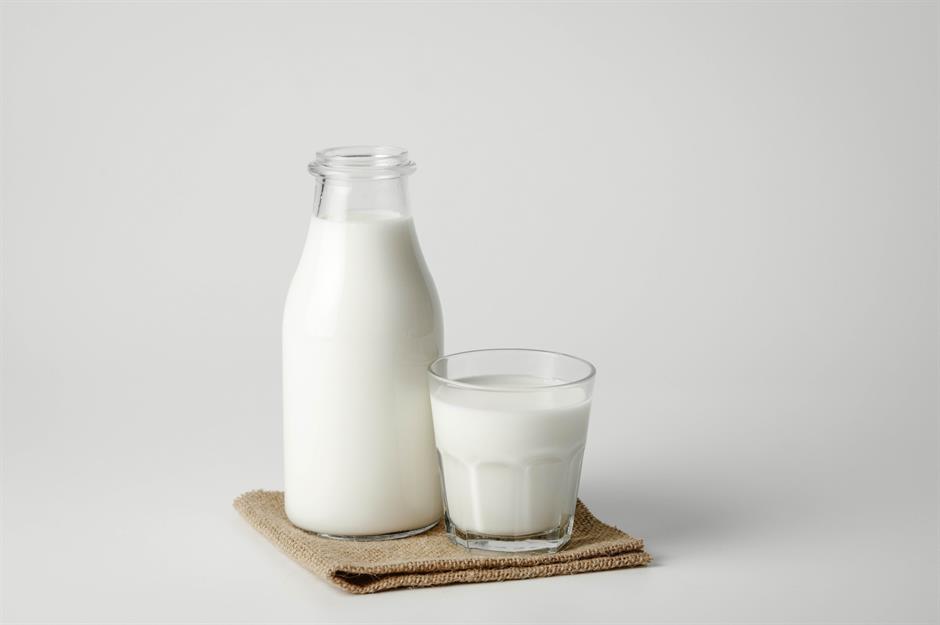
Dairy is best avoided before bed, despite the fact that milk contains tryptophan, a hormone that's often credited for making us sleepy. It’s the fat and protein in milk that might keep you awake, as they can disrupt your digestion. Instead of a glass of milk or hot chocolate, have some water or a decaf tea – but not too close to bedtime, or you might need to get up in the night.
26. Raw onions
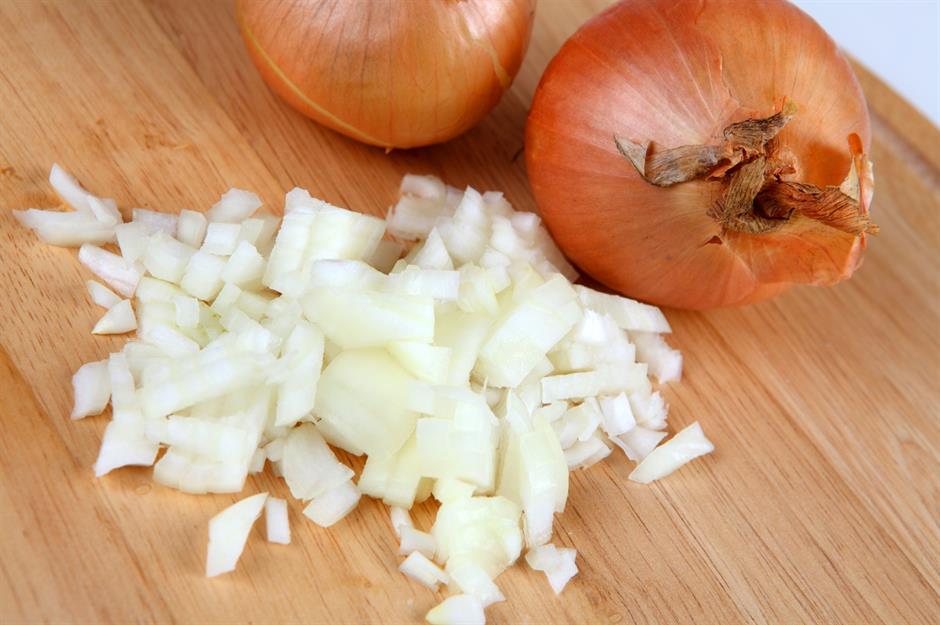
It’s not just bad breath you’ll need to watch out for if you tuck into some raw onions in the evening. Before piling them on top of a hot dog or slicing them into a salad, beware of their power to trigger acid reflux. They could cause heartburn, stomach ache, a sore throat and other problems. As such, they’re best enjoyed at lunchtime or earlier in the day.
25. Citrus fruits
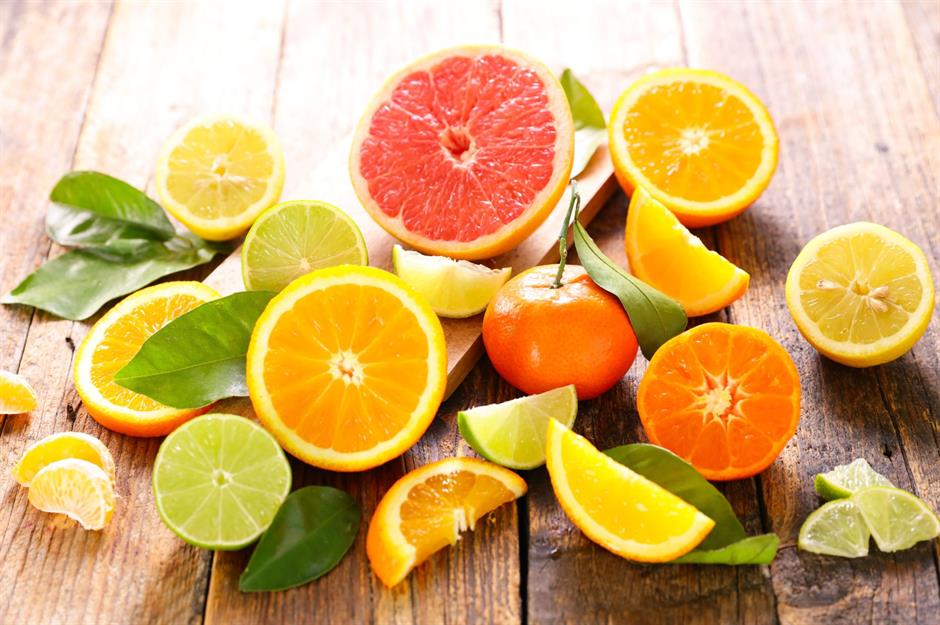
Whether you struggle with acid reflux or not, avoiding citrus fruits before your nightly slumber is recommended due to their intense levels of acidity. Fruits including oranges, lemons, limes, grapefruits and tangerines may be high in vitamin C, but they aren’t the easiest foods to digest – and they have the potential to cause indigestion and heartburn. Reserve these fruits for an energising, nutrient-packed breakfast instead.
24. Tomato-based products
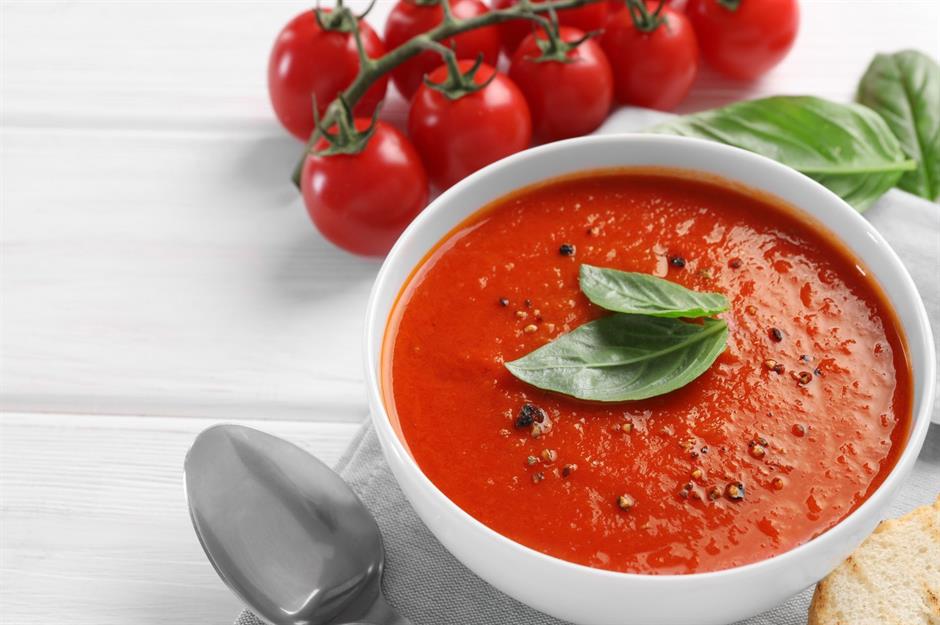
If you suffer from acid reflux, you’ll already be aware of the side effects tomatoes can cause – but these highly acidic fruits can also cause issues like heartburn and indigestion, which worsen when we're lying down. This goes for non-fresh tomato products, too; before bed, you're best off avoiding tomato-based sauces, stews, soups, juices and (sadly) pizza. While tomatoes do contain melatonin, a natural sleep-enhancing hormone, it's best to avoid them for at least three hours before heading to sleep if you have issues with acid reflux or indigestion.
23. Broccoli
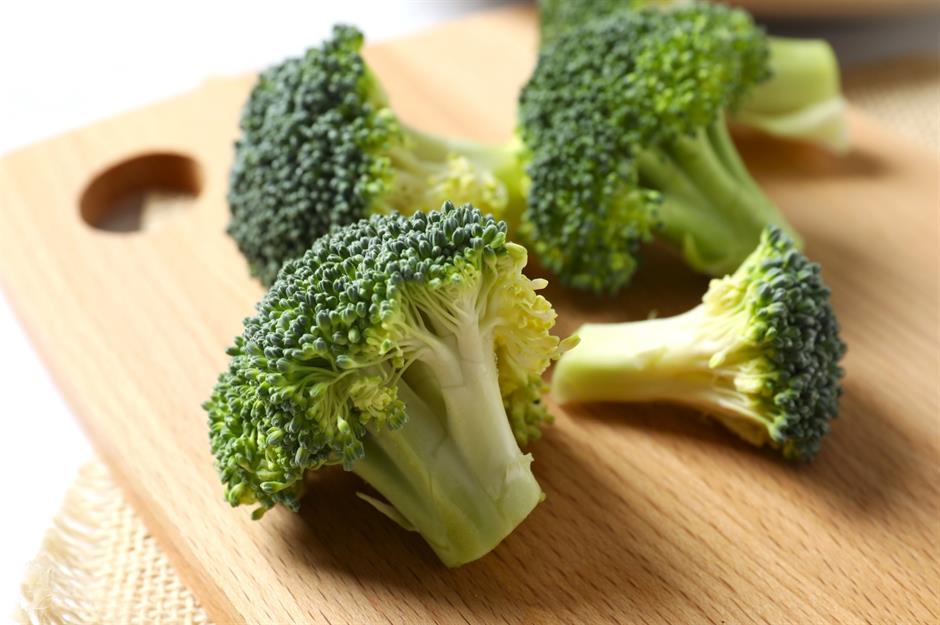
Broccoli is prized for having plenty of fibre, so it's worth adding it to your diet if you want to keep your digestive system moving. Eat it too late in the day, though, and you might not feel the benefit of all that fibre. Instead of healthy digestion, you could be in for flatulence and discomfort when you lie down. It’s fantastic as part of a healthy dinner, but try to eat it a little earlier. The same goes for cauliflower.
22. Ice cream
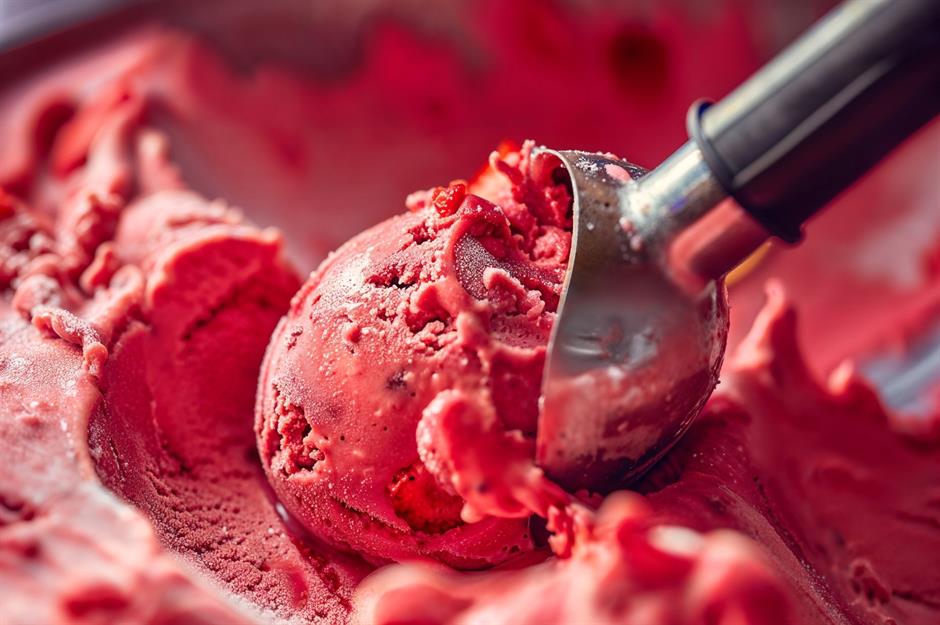
As much as a dreamy scoop of ice cream before bed can be tempting, you might want to have a rethink if it’s your late-night treat of choice. Ice cream is high in fat and loaded with sugar – two things that can have a negative impact on sleep. For a similarly sweet and satisfying dessert, try a non-fat yogurt instead.
21. Too much liquid

While a small glass of room-temperature water before bed can work to hydrate the body after a day’s activity, drinking a large quantity of fluid late in the evening will put a strain on your bladder and cause you to need the toilet throughout the night. Try to drink more fluids during the day, tapering off your intake around two hours before bed.
20. Cucumber
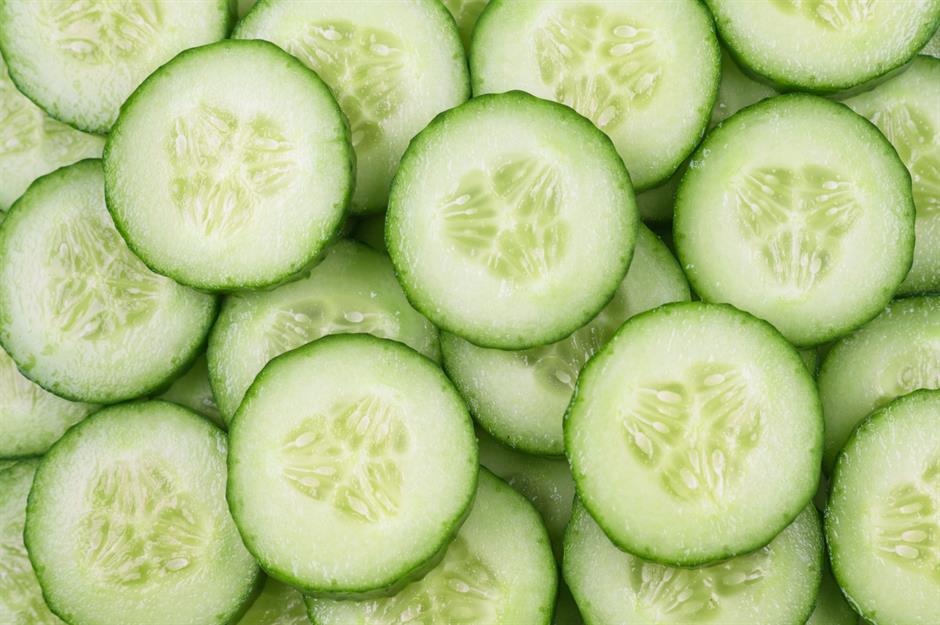
Fresh cucumber is notoriously hydrating – but it can be a little too hydrating. It’s easy to forget about all that liquid when you’re eating it, not drinking it, but it could soon go straight to your bladder. Give cucumber a miss before bed and you’ll be able to stay wrapped in your warm cocoon instead of having to get up to use the toilet in the middle of the night.
19. Aged, fermented and smoked meat
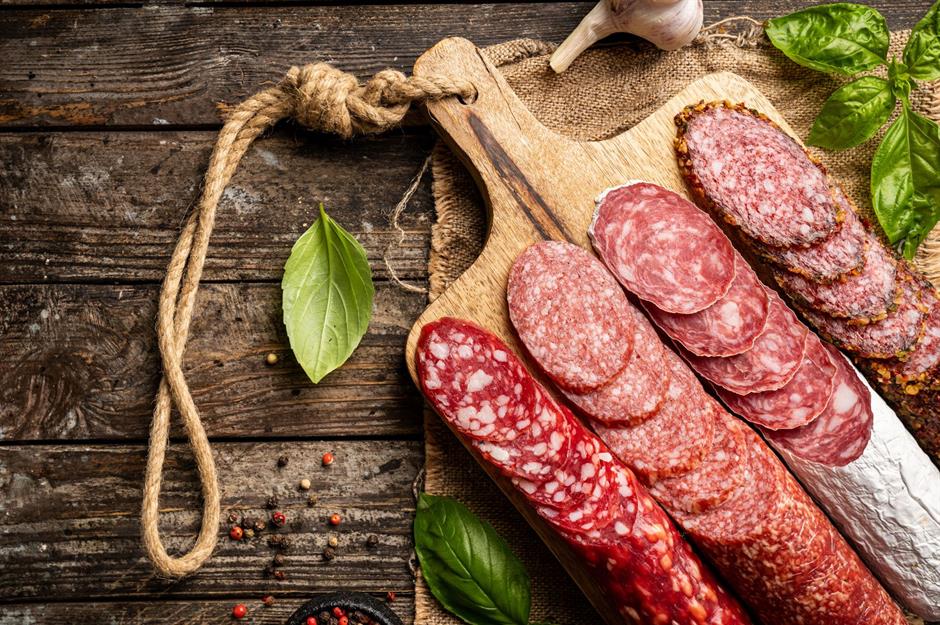
Similar to aged sauces, fermented or smoked meats (such as bacon, chorizo, frankfurters, pepperoni and salami) can hinder your chances of nodding off blissfully at night. These meats also contain the amino acid tyramine, which is thought to induce sleeplessness – so it's best not to indulge in a charcuterie platter, hot dog or bacon sandwich before bed.
18. Red meat
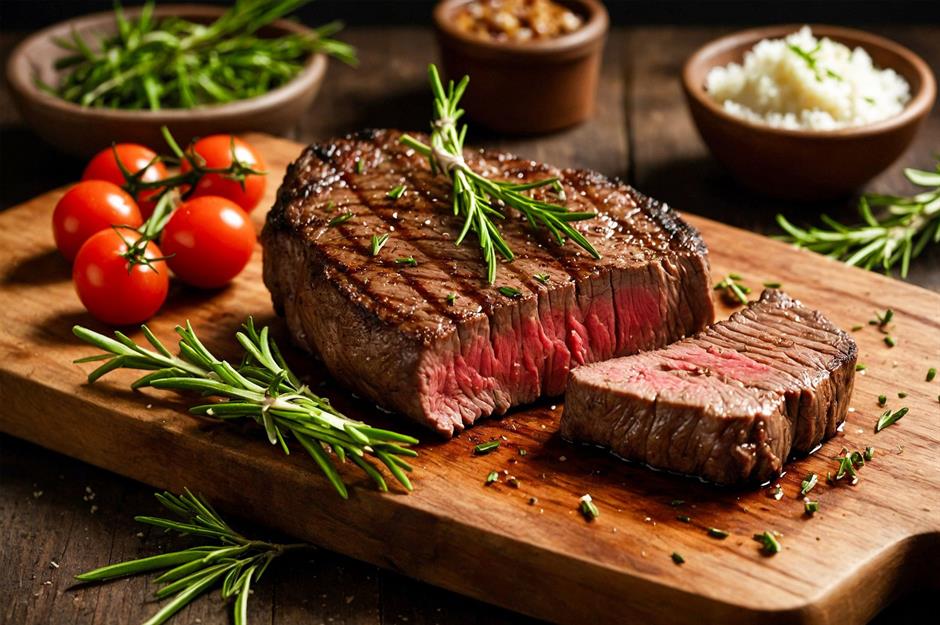
We’re not saying you have to forgo the occasional celebratory sirloin, but devouring red meat too late at night has been linked with disrupted sleep. This protein-packed food source is difficult to digest, and lying down too soon after a heavy meal of steak or lamb will encourage your digestive system to work harder, when it should be slowing down. Cue indigestion and acid reflux – neither of which are ideal when you're trying to drift off.
17. Aubergine
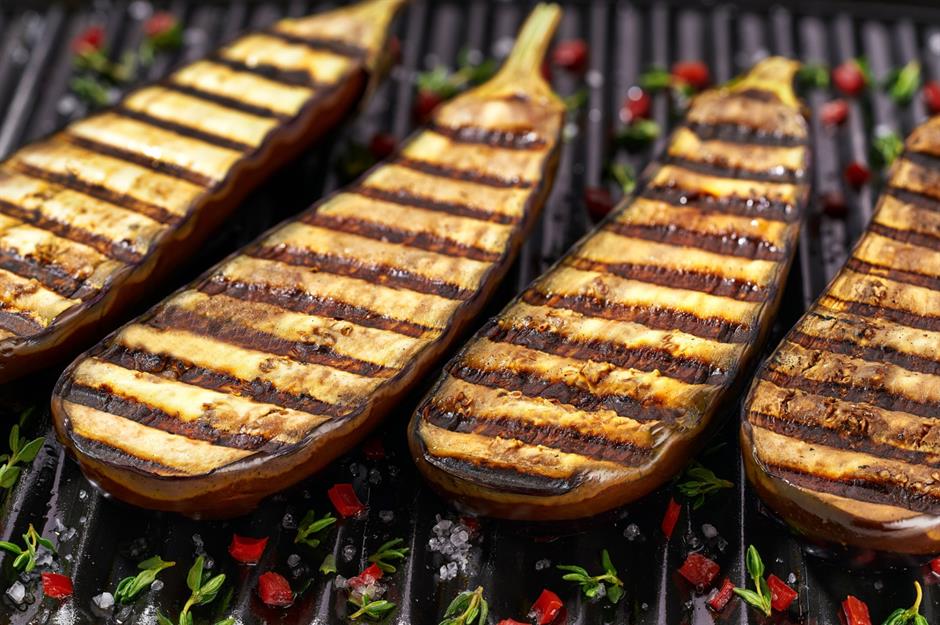
The last time you were lying awake, unable to fall asleep, it could have been baba ghanoush to blame. Healthy aubergine is delicious in a moussaka, but you might want to think twice before you eat it too late in the day. The vegetable contains the amino acid tyramine, which can work as a stimulant, switching on your brain when you really want it to switch off.
16. Salty foods
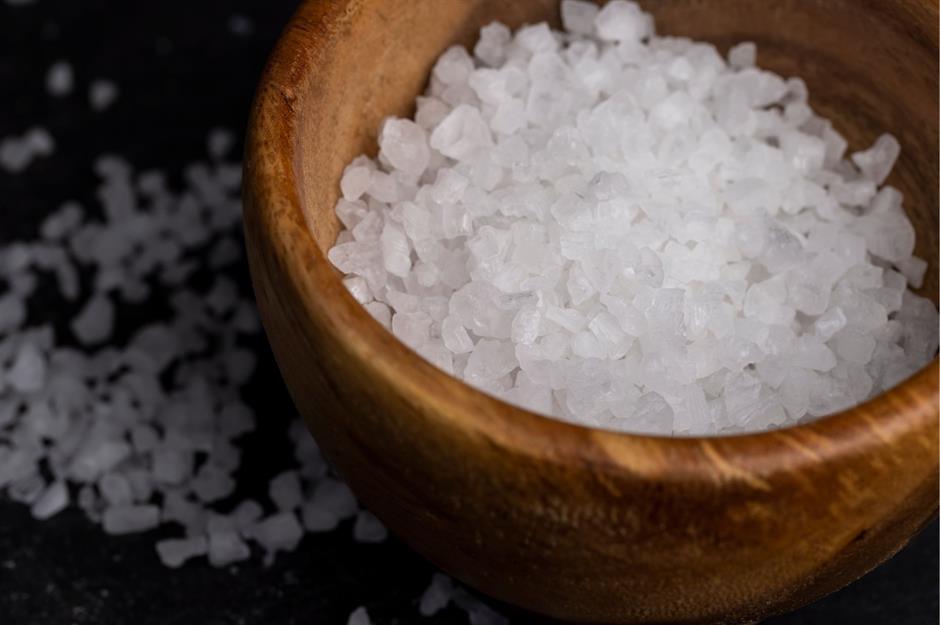
Not only can a high-sodium diet lead to high blood pressure, but salty foods can also disrupt your sleep. Even a late sodium-packed dinner can have an impact, causing restless sleep and water retention – meaning you’re likely to be up and down the corridor to the bathroom all night. While your nightly packet of crisps could be contributing to this, other salty culprits include pizza, bread, crackers, processed snacks and fast foods.
15. Butter
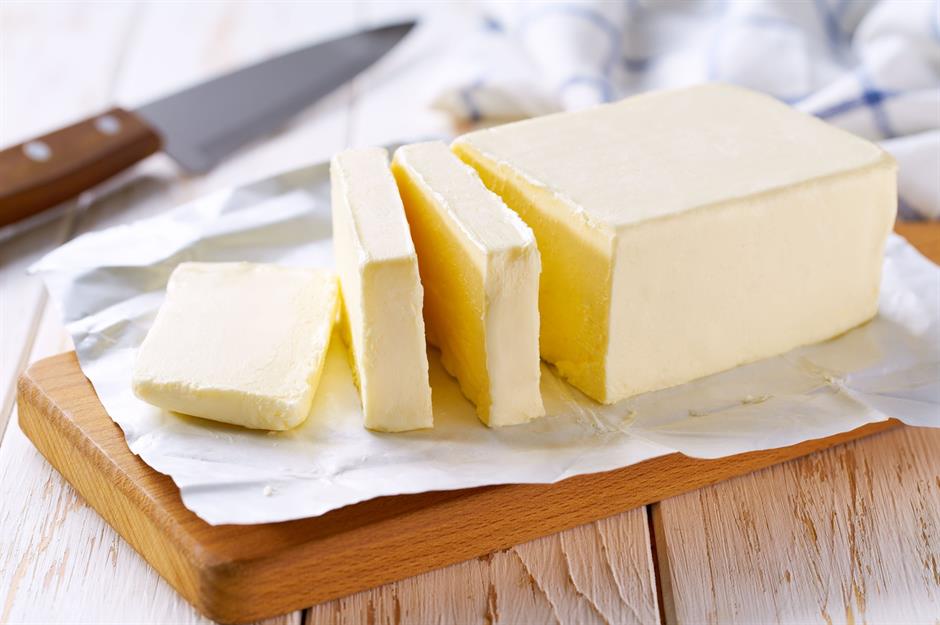
The saturated fats in butter are part of what makes it taste good, but they could also be responsible for keeping you awake for longer after you've turned in for the night. Eating butter too late in the evening could put your stomach in turmoil due to the high amount of fat it contains, so it’s wise to swap it for a spread that's lower in fat next time you feel like a midnight snack.
14. White bread
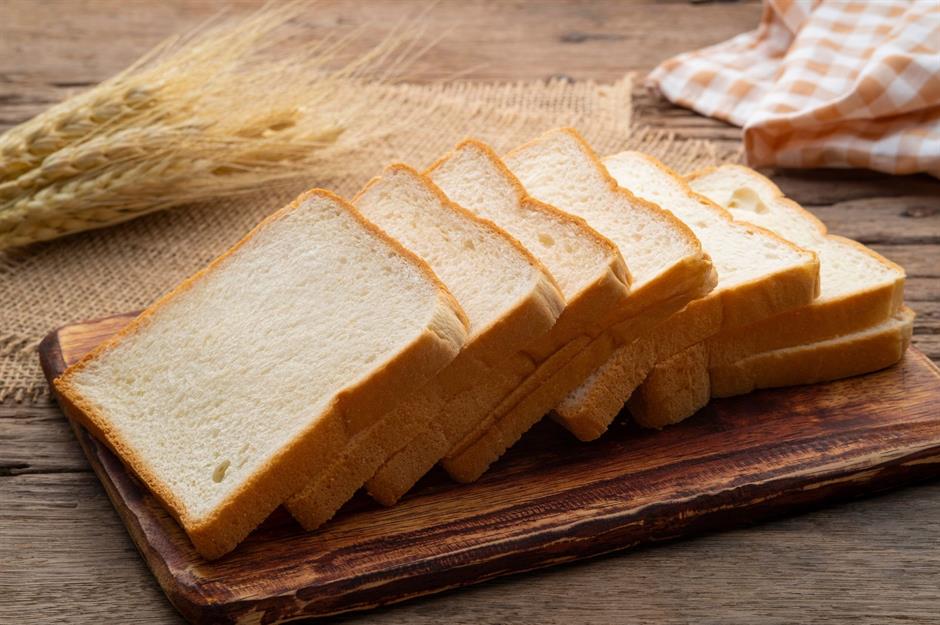
A late-night round of toast with butter can be delicious, but you might want to reconsider your choice of bread next time. Refined carbohydrates such as white bread and pasta have a high glycaemic index (GI) and can spike your blood sugar levels rather rapidly. While it may curb those hunger pangs, the influx of energy is likely to impact your sleep more negatively than you might realise.
13. Aged and fermented cheese
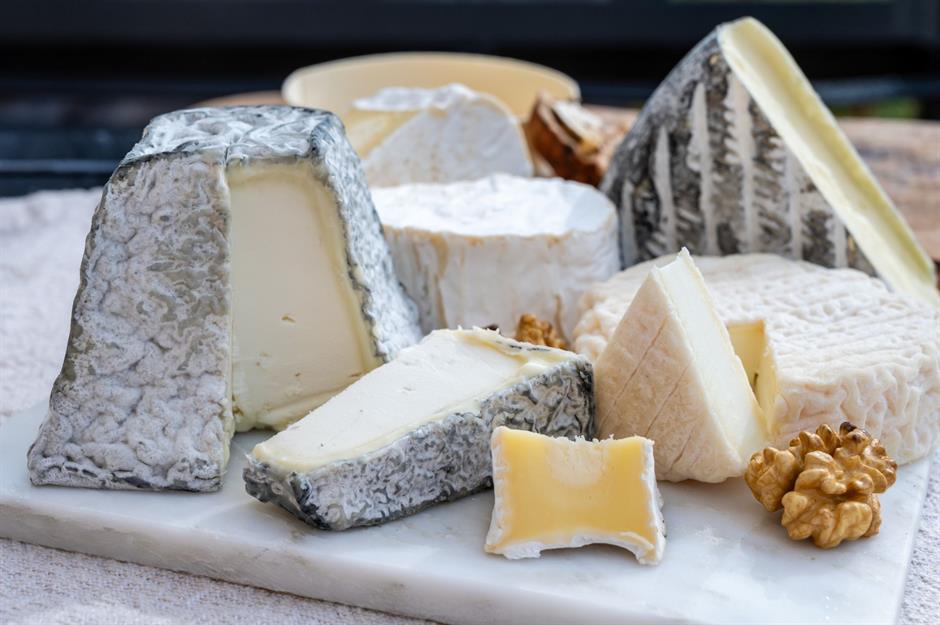
While they won't give you nightmares (as the old wives' tale suggests), it's probably still best to avoid aged cheeses like blue cheese, Brie, Cheddar and Parmesan before going to bed. These cheeses also contain the amino acid tyramine, resulting in wakefulness – not exactly what you want after a long day. Pick a young cheese, such as cottage cheese, instead; these cheeses contain another amino acid, tryptophan, which promotes sleep.
12. Spicy food

If you suffer from discomforting gastric problems or indigestion, or you're particularly sensitive to chilli peppers, you'd be best off avoiding spicy food before bed. There are several reasons why these flavourful foods can cause issues at night, including heartburn and acid reflux. Plus, studies have linked capsaicin – the active ingredient in chillies and cayenne peppers – to sleep loss due to their body temperature–altering qualities.
11. Fast food
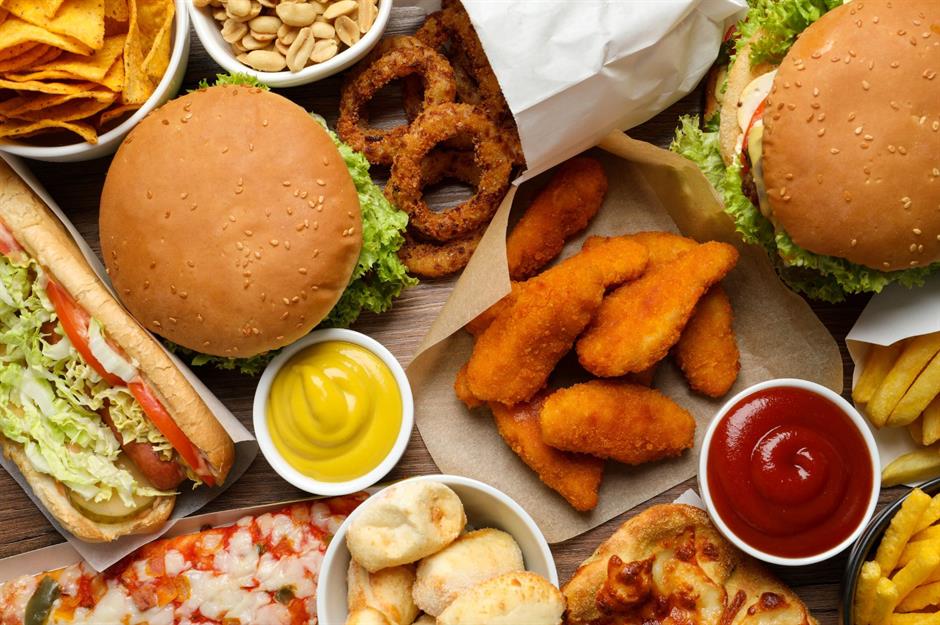
You might want to rethink that late night drive-thru order if you’re hoping to get some good shuteye. While it’s nice as an occasional treat, fast food is known for being heavily processed – and studies of children and adolescents have linked it with poor sleep. No matter your age, curbing your intake of fast food could see you enjoying a more blissful snooze.
10. Sugary cereal
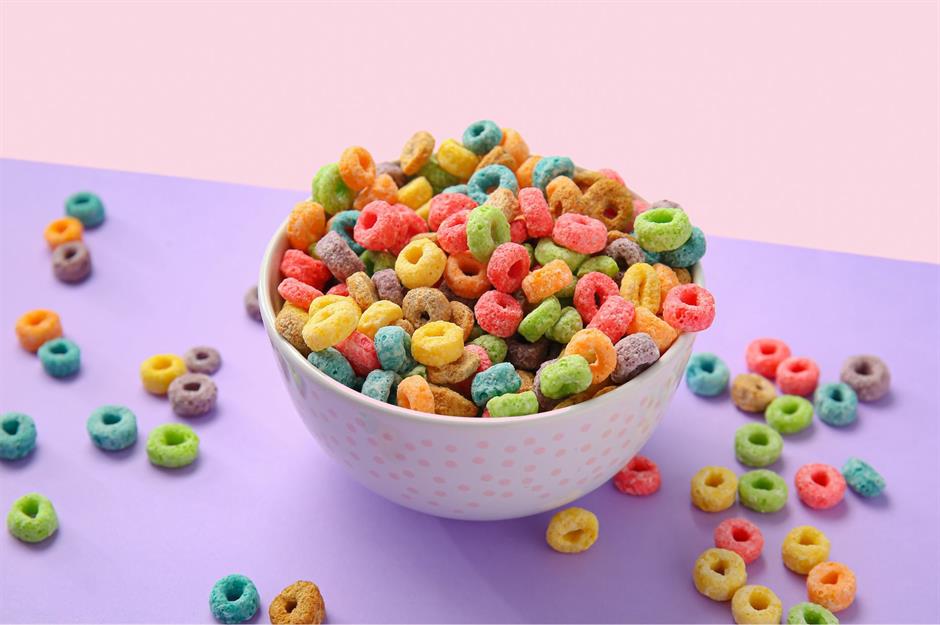
You might want to steer away from your favourite childhood cereal before you hit the hay; it’s likely laced with sugar, and high in artificial flavours and colours, which will do nothing to help you sleep. Sadly, a lot of the major cereal brands aimed at children contain excessive sugars and other undesirable ingredients – so it’s best to check the label and swap to a healthier alternative before devouring a bedtime bowlful.
9. Kidney beans
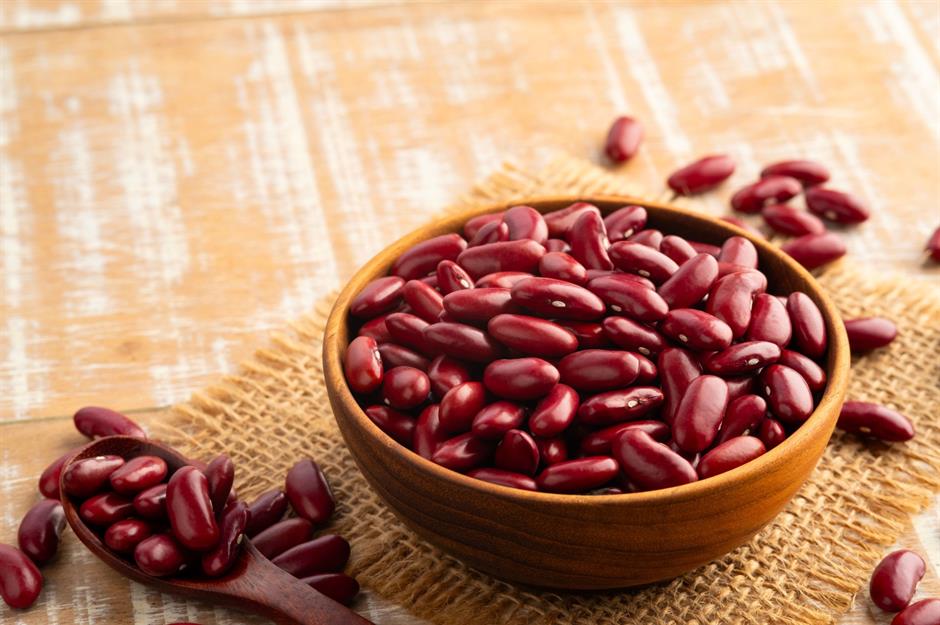
Kidney beans take time to digest, which is great if you’re looking for slow-release energy during the day. At night, their high fibre content is something of a downside; the beans can potentially cause stomach discomfort if they aren't fully digested before you go to bed. Beans have a tendency to cause flatulence too, making for some windy evenings if you’re not careful.
8. Chocolate
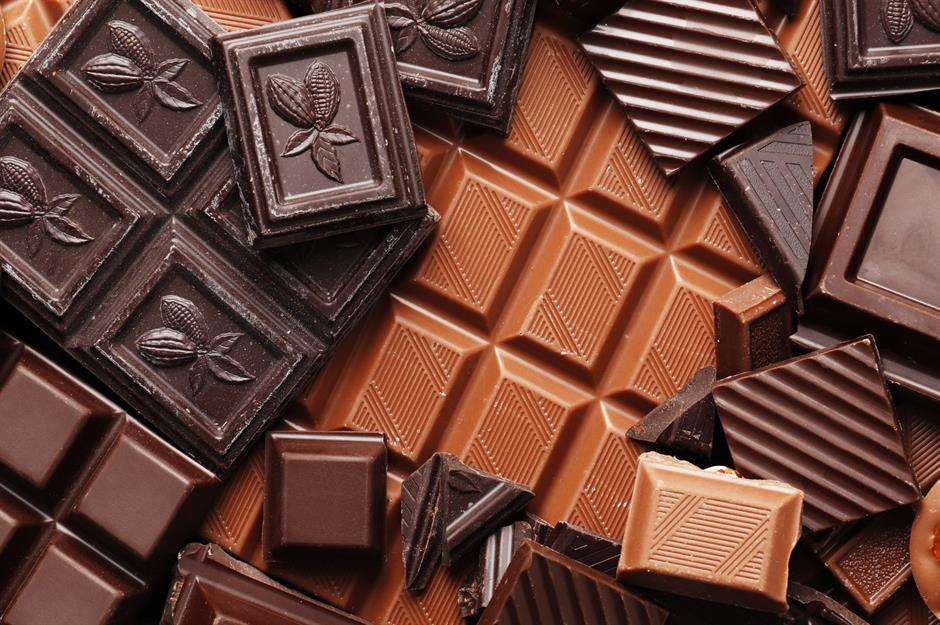
It's always tempting to snap off a couple of squares from a chocolate bar in the evening, but it's a habit that might do you more harm than good. Bars of milk or white chocolate usually pack a hefty amount of sugar, while dark chocolate typically contains a higher percentage of caffeine – neither of which are ideal before bed. Not only that, but dark chocolate also contains theobromine (a heart rate–quickening stimulant). Our advice? Keep those late-night snacks to a minimum!
7. Alcohol
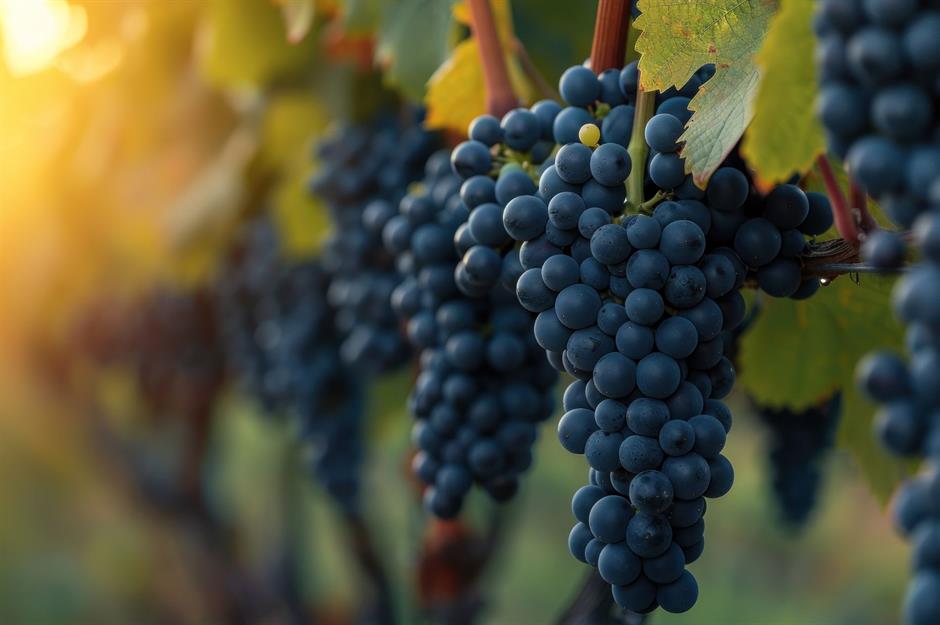
According to Drinkaware UK, as little as one drink can affect our sleep patterns. On average, our bodies take an hour to process just one unit of alcohol – and the more we drink, the longer it’ll take. To get a good night's rest, we should allow our bodies plenty of time to process any alcohol we've drunk. Drinking alcohol is also said to send us into a deep slumber too quickly, reducing rapid eye movement (REM) sleep and resulting in a less refreshed snooze. Plus, booze is a diuretic, increasing the need for night-time bathroom trips.
6. Biscuits
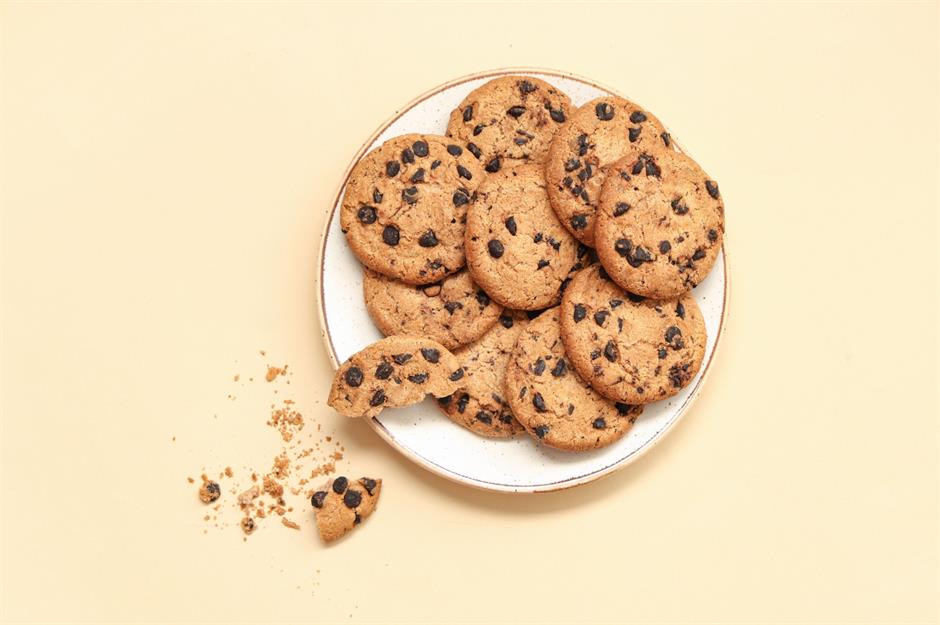
A couple of biscuits with your evening cup of tea might not be the best idea if you’re hoping for a peaceful snooze. Biscuits can spike your blood sugar levels and cause discomfort, all because of the saturated fat in the butter that's used to make them. Chocolatey biscuits are an even greater risk for sleepless nights as they contain naturally occurring caffeine. However, if you need something to dunk, some biscuits are better than others. Rather than a buttery cookie or shortbread, go for a plain oat biscuit.
5. Sweets
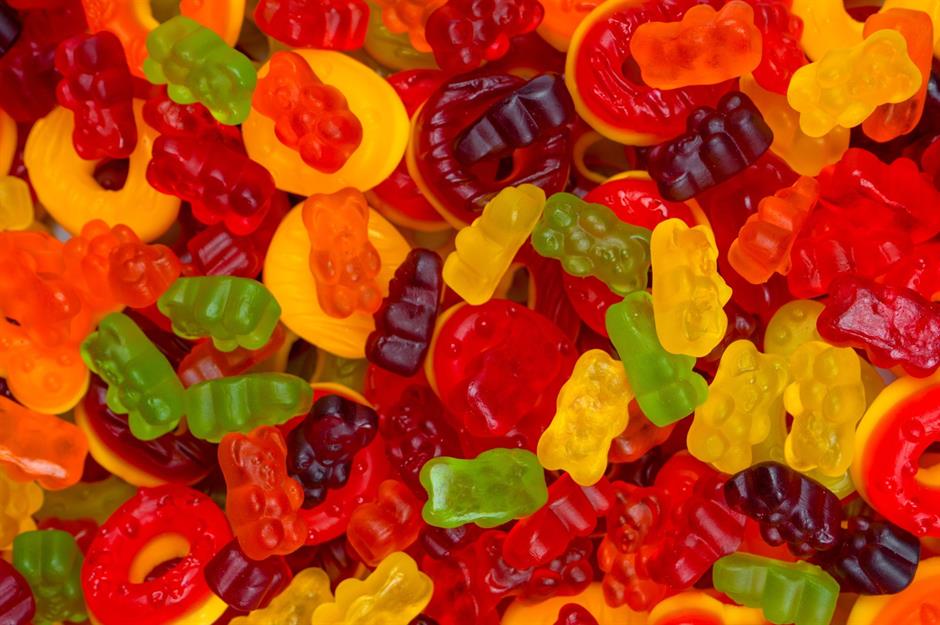
Foods high in refined sugars and artificial sweeteners – including sweets and candy bars – can play havoc with your blood sugar levels. We're all aware of the effects too much sugar can have on our bodies, but consuming it too close to bedtime can seriously disrupt our natural sleepiness. Plus, less sleep at night could lead to you needing to eat more energy-boosting foods during the day.
4. Fizzy drinks
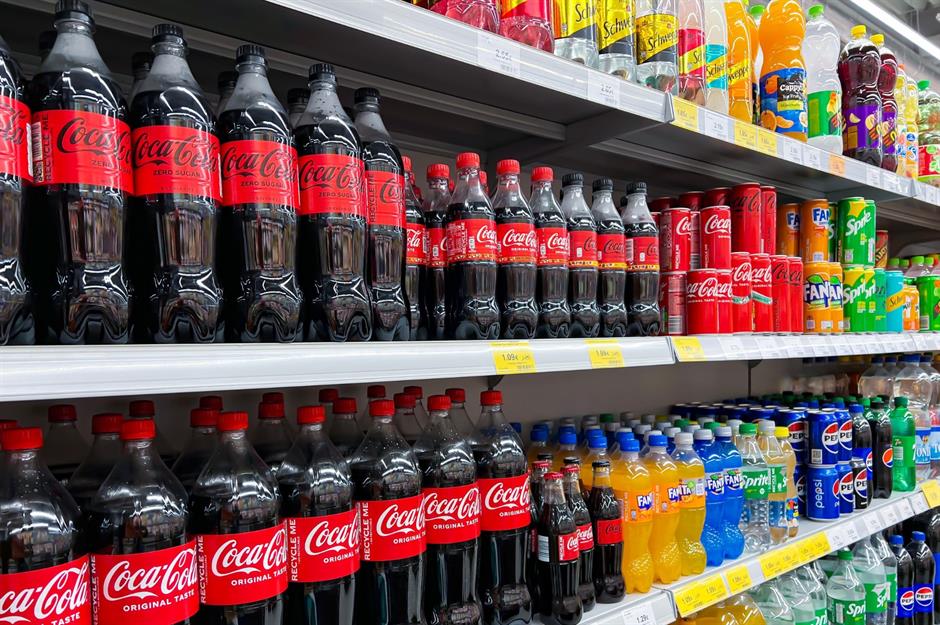
It’s no secret that fizzy drinks usually come loaded with sugar, sweeteners and caffeine – and little else. All of your favourites, from Coca-Cola and Pepsi to Dr Pepper and Mountain Dew, could be causing you to stay awake until the early hours, leaving you feeling groggy (and needing a further sugar and caffeine boost) the next morning. It’s best to avoid fizzy drinks after 4pm, as it can take up to six hours for the caffeine they contain to leave the body.
3. Fatty foods
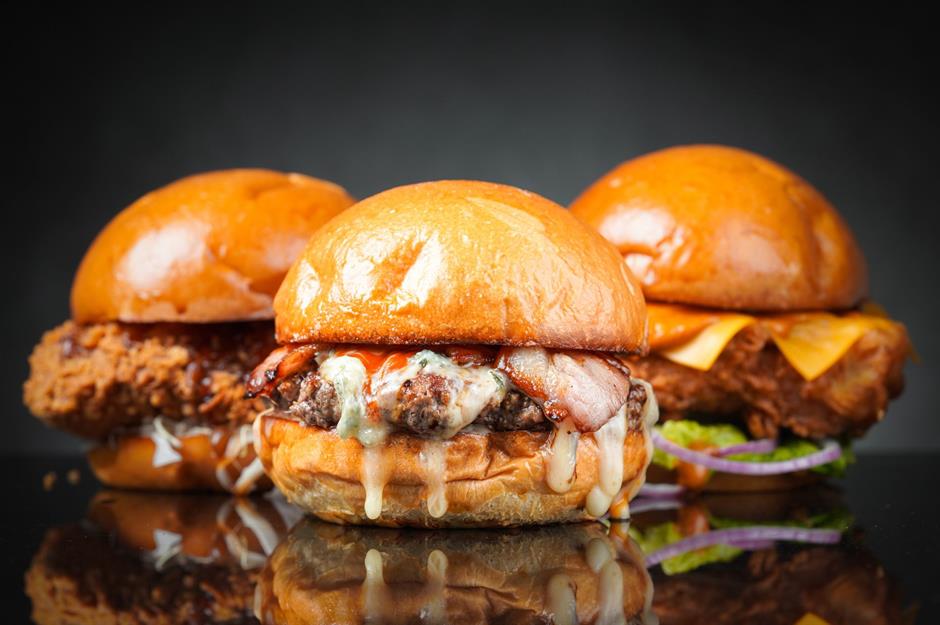
Eating foods that are high in fats, from deep-fried dishes to processed snacks, is likely to lead to a bad night’s sleep. These foods can have a number of negative effects on our bodies, including causing acid reflux, spiking blood sugar levels and prompting digestive problems. The occasional indulgence is fine, but reducing your overall intake could result in a more peaceful slumber.
2. Energy drinks
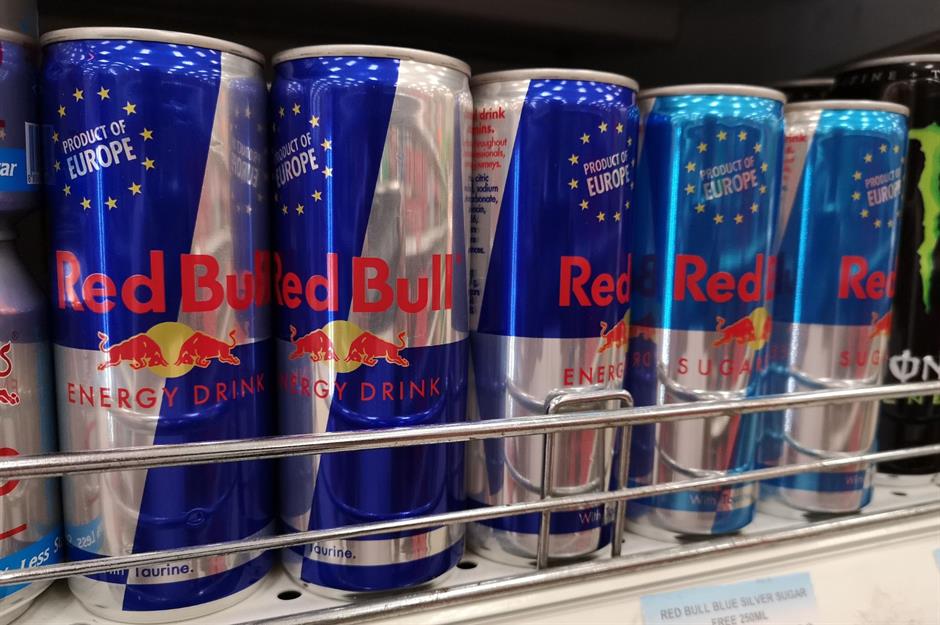
The clue is in the name here. Packed with sugars, sweeteners and caffeine, energy drinks are among the worst liquids to consume before bedtime. While they can be useful in providing a boost when you’re low on energy, they can have a negative effect on sleep if drunk too late in the day. Besides being stacked with sugars, many energy drinks also contain high levels of caffeine, which can take up to six hours to leave the body.
1. Coffee
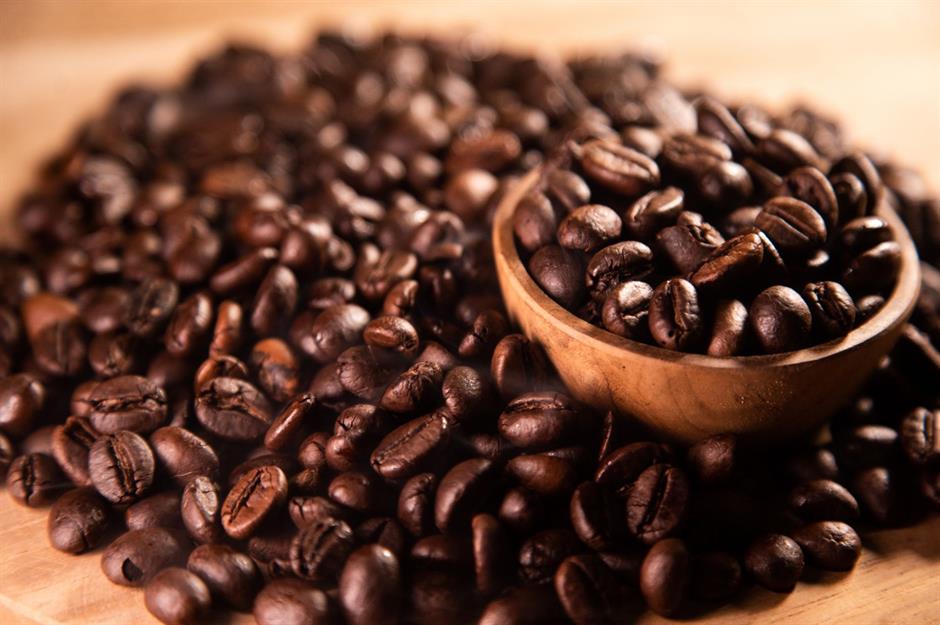
Consuming up to 400mg of caffeine a day can have a positive effect on our bodies, increasing our alertness and concentration. However, it can take up to six hours for caffeine to leave the body, meaning that a post-4pm coffee break could have night-time repercussions. For reference, an average cup of coffee contains up to 100mg of caffeine, while a cup of black or green tea has up to 50mg. Consumed in the evening, all of these drinks can have a detrimental impact on our sleep – not just because caffeine is a stimulant, but also because it has a diuretic effect.
Now discover the foods to eat (and avoid) for a longer, healthier life
Last updated by Laura Ellis.
Comments
Do you want to comment on this article? You need to be signed in for this feature